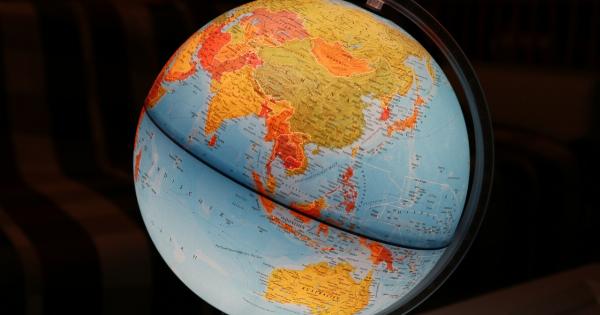Corruption is an issue that plagues societies around the world, contributing to the erosion of morality and leading to widespread dishonesty. It involves the abuse of entrusted power for personal gain, often at the expense of the greater good.
When corruption becomes ingrained in a society, it permeates various aspects of life and adversely affects individuals, institutions, and the overall social fabric. This article explores the detrimental effects of corruption on morality and how it fosters a culture of dishonesty.
The Link Between Corruption and Morality
Corruption and morality are closely intertwined. Morality refers to a set of principles or values that guide individuals in their conduct and interactions with others. It encompasses concepts such as honesty, integrity, fairness, and accountability.
When corruption becomes prevalent in a society, it undermines these fundamental moral values, promoting a culture of dishonesty, deceit, and self-interest.
1. Corruption Breeds Distrust
One of the significant impacts of corruption on society is the erosion of trust. When corruption is rampant, people lose faith in public institutions, leaders, and fellow citizens.
This distrust generates a vicious cycle wherein individuals are more likely to engage in dishonest practices themselves, perceiving them as necessary to navigate a corrupt system. Consequently, corruption spreads like wildfire, leaving little room for ethical behavior.
2. Corruption Undermines Social Justice
A just society is built on the principles of equality, fairness, and the rule of law. However, corruption disrupts this delicate balance by allowing the wealthy and powerful to manipulate the system for their benefit.
When corruption permeates institutions, it leads to preferential treatment, nepotism, and the marginalization of the vulnerable. This erosion of social justice not only harms individuals directly affected but also erodes overall societal cohesion and trust.
3. Corruption Weakens Democracy
Democracy relies on the principles of transparency, accountability, and citizen participation. However, corruption poses a severe threat to democratic values.
When politicians and public officials prioritize personal gain over public interest, democratic institutions become weakened and lose their legitimacy. Moreover, corruption hampers the effectiveness of mechanisms such as free and fair elections, leading to the consolidation of power in the hands of the corrupt few.
4. Corruption Stifles Economic Development
The impact of corruption on economic development cannot be overstated. It diverts resources from productive activities to the pockets of the corrupt, impeding economic growth and hampering the welfare of citizens.
Corruption discourages investment, both domestic and foreign, by creating an unpredictable business environment characterized by bribery, favoritism, and a lack of level playing field. Ultimately, societies mired in corruption find it difficult to achieve sustainable economic progress and uplift their citizens from poverty.
5. Corruption Undermines Education
Education is one of the pillars of social progress and individual empowerment. However, corruption can have a devastating impact on educational institutions.
When corruption infiltrates the education sector, it devalues meritocracy and erodes the quality of education. Issues such as unqualified teachers, the sale of academic degrees, and embezzlement of educational funds compromise the integrity of the education system and rob future generations of the opportunity for a better future.
6. Corruption Affects Healthcare
Corruption in the healthcare sector can be a matter of life and death. When healthcare professionals demand bribes or engage in fraudulent practices, it jeopardizes the well-being of patients and erodes trust in the medical profession.
Corruption leads to inadequate healthcare services, particularly for the most vulnerable populations, and undermines public health initiatives. Ultimately, the consequence is an increase in preventable deaths and the perpetuation of inequality in access to healthcare.
7. Corruption Harms the Environment
Environmental degradation is another casualty of corruption. When corrupt individuals exploit their positions of power for personal gain, they often overlook the long-term environmental consequences of their actions.
Illegal logging, pollution, and destruction of natural resources are all examples of corruption-driven activities that harm ecosystems and contribute to climate change. Such actions undermine sustainable development efforts and compromise the well-being of future generations.
8. Corruption Fuels Organized Crime
Corruption and organized crime are interlinked, with each reinforcing the other. Corrupt officials provide cover and protection to criminal networks, while criminal enterprises generate illicit funds that corrupt individuals may exploit.
This symbiotic relationship between corruption and organized crime undermines law enforcement, fosters a culture of impunity, and perpetuates a cycle of criminality that hampers societal progress.
9. Corruption Impedes Social Mobility
A fair and just society should provide equal opportunities for social mobility, regardless of an individual’s background.
However, corruption erects barriers to upward mobility, as access to education, employment, and essential services becomes contingent on bribery or personal connections. This perpetuates social inequality and stifles human potential, leaving talented individuals unable to fulfill their aspirations while reinforcing the privileges of the already privileged.
10. Corruption Breeds Cynicism and Apathy
Widespread corruption breeds cynicism and apathy among citizens, creating a sense of resignation and helplessness.
When people perceive that corruption is pervasive and goes unpunished, they are less likely to engage in acts of resistance or demand accountability from their leaders. This complacency allows corruption to persist and further erodes societal morality, as individuals may adopt a “if you can’t beat them, join them” mentality, perpetuating the cycle of dishonesty.
Conclusion
Corruption is a disease that infiltrates societies with alarming ease, eroding morality and leading to widespread dishonesty.
Its detrimental effects are manifold, impacting trust, social justice, democracy, economic development, education, healthcare, the environment, and much more. To combat corruption and restore morality, it is crucial to strengthen institutions, promote transparency, hold corrupt individuals accountable, and foster a culture that values integrity and ethical behavior.
Only through collective efforts can societies break free from the cycle of corruption and restore morality as a guiding principle for all.





























